
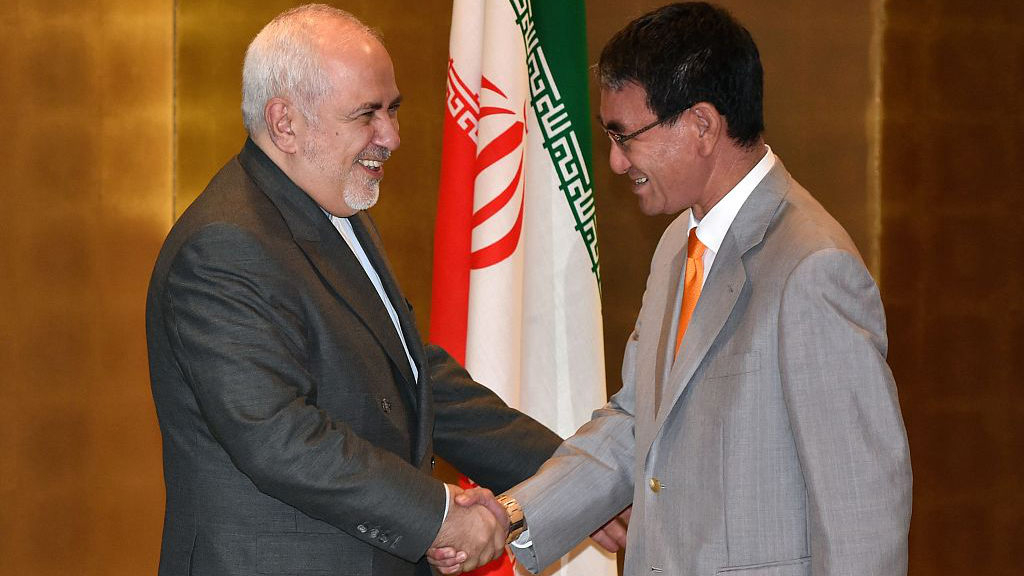
Iranian Foreign Minister Mohammad Javad Zarif told his Japanese counterpart Taro Kono that Iran has a "special interest" in securing stability in the Persian Gulf, Japan's Kyodo news agency reported on Tuesday, following their meeting in Yokohama, near Tokyo.
At the beginning of the talks, Kono told Zarif, "We are worried about tensions in the Middle East, and we hope to make some diplomatic efforts to ease tensions."
In response, Zarif said Iran and Japan "both have a special interest in the security of the energy market as well as security and stability in the Persian Gulf." He also underscored the need to engage in bilateral and regional consultations, Kyodo news reported.
The meeting came after Zarif's surprise visit to the G7 summit in southern France and his following trip to China over the weekend.
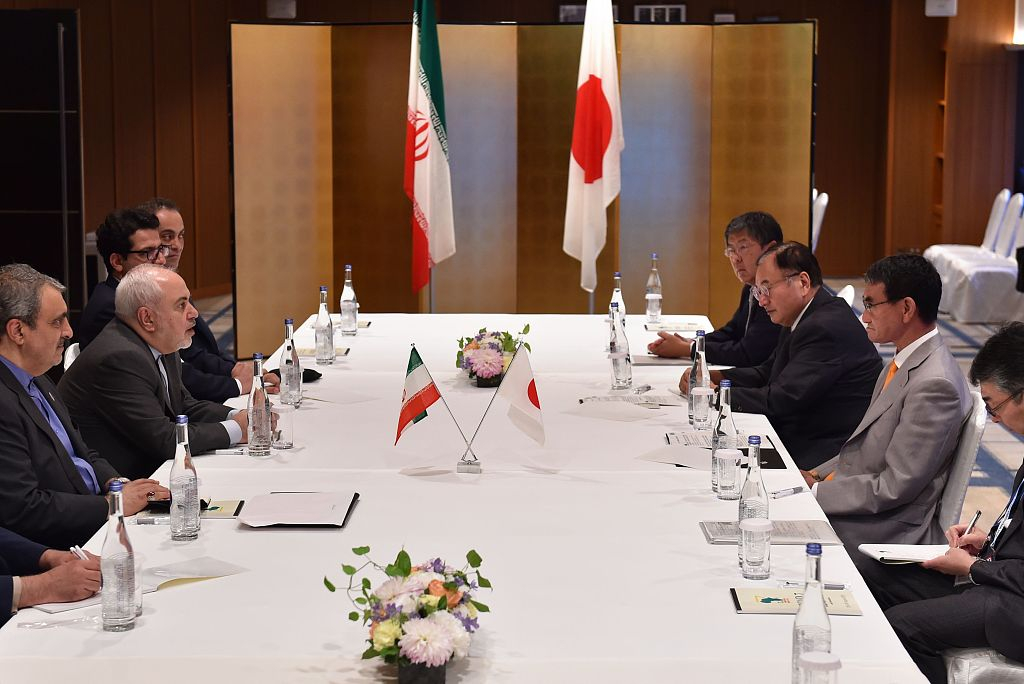
Iranian Foreign Minister Mohammad Javad Zarif and his Japanese counterpart Taro Kono hold a meeting at a hotel in Yokohama, south of Tokyo, Japan, August 27, 2019. /VCG Photo
Speaking to reporters after the meeting, Kono said they agreed to maintain close communication between Japan and Iran, which historically have had friendly ties, to ease the tension between the United States and Iran.
"Based on Japan's stance of consistently supporting the nuclear agreement, I asked the Iranian side to observe the agreement, to go back immediately to the commitments of the agreement, and to refrain from taking measures that would infringe on the agreement," Kono said.
Zarif will also meet with Japanese Prime Minister Shinzo Abe on Wednesday in Yokohama.
U.S. President Donald Trump pulled out of the 2015 agreement last year and re-imposed sanctions on Iran. In response, Iran has slowly been breaching its side of the deal, under which Tehran agreed to curbs on its nuclear program in exchange for the lifting of many international sanctions.
The standoff over the nuclear deal has caused a sharp increase in tensions between the two longtime foes.
Since ditching the deal last year, Trump has pursued a policy of "maximum pressure" to try to force Iran into broader talks to restrict its ballistic missile program and end its support of proxy forces around the Middle East.
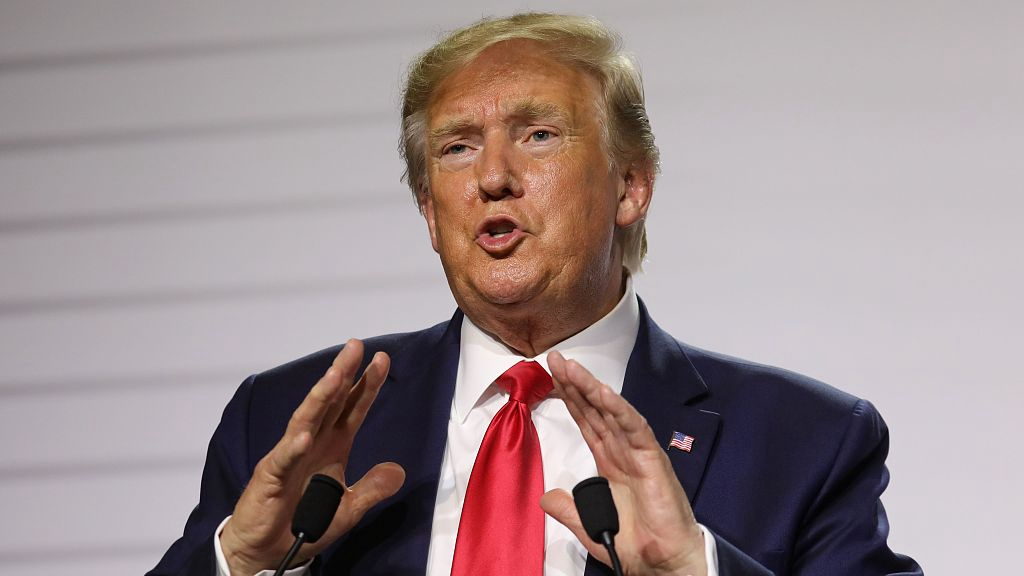
U.S. President Donald Trump during a press conference in Biarritz, France, August 26, 2019. /VCG Photo
At the G7 summit, the U.S. president ruled out lifting economic sanctions to compensate for losses suffered by Iran.
He said he would meet Iran's president under the right circumstances to end a confrontation and that talks were underway to see how countries could open credit lines to keep Iran's economy afloat.
But on Tuesday, Iranian President Hassan Rouhani said the United States should lift sanctions against Iran as a precondition for negotiations.
In his speech aired live by the state TV, Rouhani said Iran was always ready to hold talks, and the United States should lift all its "cruel" and "unlawful" sanctions against Iran and respect the Iranian nation's rights as the "first step" toward dialogue.
"Any change in our behavior will start with their repentance. I have said and again: they should re-embrace their obligations and change their path of mistakes," Rouhani said.
"Washington has the key for positive change ... So take the first step ... Without this step, this lock will not be unlocked," Rouhani said.
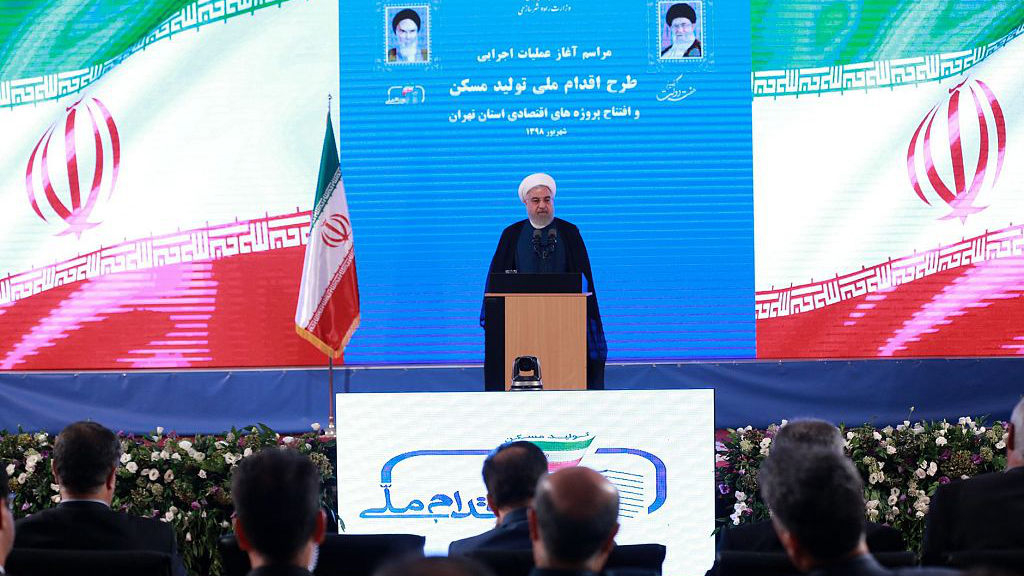
Iranian President Hassan Rouhani speaks during a ceremony in Tehran, August 27, 2019. /VCG Photo
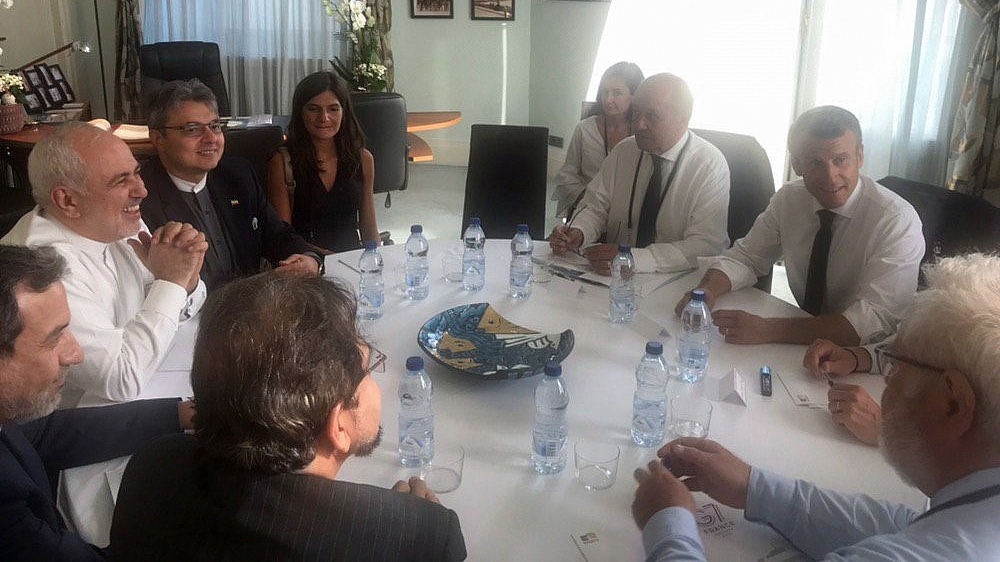
French President Emmanuel Macron (2nd R) meets with Iranian Foreign Minister Mohammad Javad Zarif (3rd L) in Biarritz, France, August 25, 2019. /VCG Photo
He added that Iran does not seek tension with the world, but that it will continue to scale back its commitments under the 2015 deal if the country's interests are not guaranteed.
Speaking of the U.S.-led mission to bolster Gulf security, Kono declined to say if the two discussed the issue or the purchase of Iranian crude oil.
Washington has been calling for its allies to join it in an operation to guard shipping in the Strait of Hormuz, a vital gateway for the world's oil industry. So far, Britain, Australia and Bahrain have joined the U.S.-led security mission.
Washington's call followed a series of attacks on international merchant vessels, which the United States has blamed on Iran, and the Iranian seizure of a British oil tanker. Tehran has denied accusations that it was behind attacks on six tankers in May and June.
(With input from Reuters)
(Cover: Iran's Foreign Minister Mohammad Javad Zarif shakes hands with his Japanese counterpart Taro Kono during their meeting at a hotel in Yokohama, south of Tokyo, Japan August 27, 2019. /VCG Photo)

Copyright © 2018 CGTN. Beijing ICP prepared NO.16065310-3
Copyright © 2018 CGTN. Beijing ICP prepared NO.16065310-3